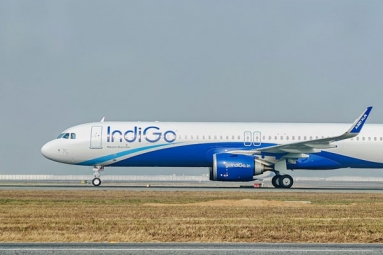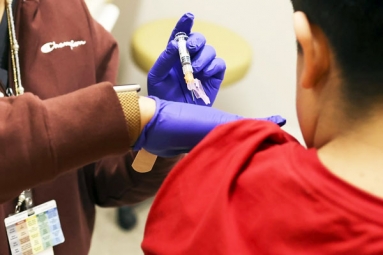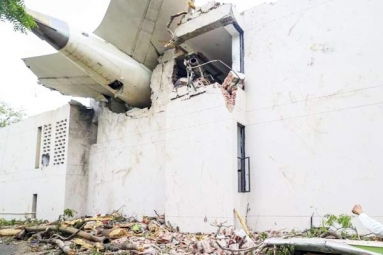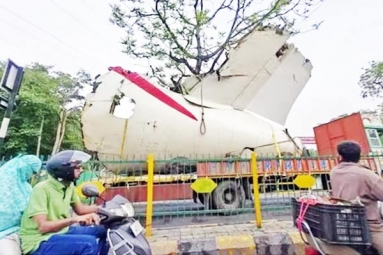
(Image source from: PTI)
A cockpit recording from the last discussion between the two pilots of the Air India flight that crashed last month in Ahmedabad, Gujarat, shows that the Captain turned off the engine's fuel, as reported by a media source from the US. According to the Wall Street Journal, the first officer flying the Boeing 787 Dreamliner questioned the more experienced Captain about his action of moving the switches to the "cutoff" setting not long after taking off. The first officer showed signs of worry, while the Captain stayed composed, as mentioned in the report. The pilots were Captain Sumeet Sabharwal and First Officer Clive Kunder, who together had accumulated 15,638 hours and 3,403 hours of flying experience, respectively.
Both lost their lives in the heartbreaking crash, along with 241 others on board and 19 people on the ground. Only one passenger managed to survive.
The Wall Street Journal refers to a preliminary report from the Aircraft Accident Investigation Bureau (AIIB), indicating that the fuel cutoff switches for both engines were moved to the off position one after the other within just a second after takeoff. The interval between takeoff and crash was a mere 32 seconds. Details from the early report imply that it was the captain who switched off the controls, as reported by the Wall Street Journal, citing sources familiar with the case, including US pilots and safety analysts observing the investigation. The US publication mentioned, "The report did not clarify whether turning off the switches was a mistake or intentional".
Last week, Civil Aviation Minister Kinjarapu Ram Mohan Naidu stated that the report is only based on initial findings, and that "one should not reach conclusions" until the final report is released. He added, "I don’t believe we should make any conclusions about this. I think we have the best pilots and crew in the entire world. I must commend all the dedication shown by our pilots and crew; they are essential to civil aviation. Their well-being is important to us as well. So let's refrain from making any conclusions at this moment and wait for the final report.
Mr. Naidu mentioned, "There are details to consider. It would be too early to make comments on the report. The initial information has arrived, but we must wait for more solid findings". The International Federation of Air Line Pilots' Associations (IFALPA), a worldwide group of pilots, also released a statement regarding the AIIB report, stating that although it brings up many issues, it does not give any solutions. The association claimed that any assumptions made about the interim report should be seen as mere speculation and could obstruct the investigation. The international pilots' group also encouraged everyone to avoid guessing, let the inquiry proceed thoroughly, and refrain from jumping to conclusions based on the initial report.
Air India, which finished precautionary checks on the locking system of the Fuel Control Switch (FCS) on its fleet of Boeing 787-8 aircraft, reported that there were no problems found during the inspections. These checks were carried out following the guidance of the Directorate General of Civil Aviation (DGCA). "During the weekend, our engineering team started precautionary checks on the locking system of the Fuel Control Switch (FCS) for all our Boeing 787 planes. The checks are done, and no problems were identified," the airline informed its flight staff. The airline also confirmed that all of its Boeing 787-8 planes have received Throttle Control Module (TCM) replacements as part of Boeing's recommended maintenance plan. The Fuel Control Switch is a key component of the TCM.











